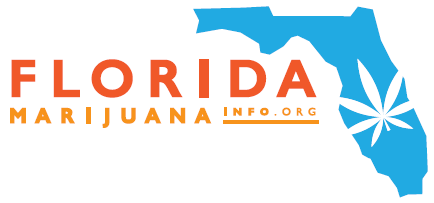Some form of marijuana is legal in the states of 20 NFL teams
As the NFL kicks off the 2016-17 season, fans will be watching Florida Dolphins’ rookie offensive lineman Laremy Tunsil in the starting lineup. It was only five months ago, when the internet reeled over a 30 second video of the Ole Miss star with a bong smoking marijuana through a gas mask. The video surfaced on Twitter just before the NFL draft. It hurt Tunsil who dropped from possible first pick to 13th overall.
In just minutes, typical college shenanigans cost the talented NFL rookie possibly millions of dollars. But with the growing movement to legalize marijuana, did the NFL overreact? As a new football season begins, some form of marijuana is legal in the states of 20 NFL teams. That number could go up as nine states put pot on the ballot this November.
As more Americans turn to medical marijuana to cope with illness and pain, athletes dealing with brain injuries are pushing the NFL to be more progressive and end its pot policy. With professional sports rifled with doping and athletes deceptively outsmarting drug tests for steroids, HGH and designer performance-enhancing drugs, why is the NFL worried about a little weed?
Marijuana offers players no advantage over their competitors. Cannabis does not help athletes bulk up unless they have the “munchies” and overeat junk food. In 2016, is it time for the league to consider changing its substance abuse policy?
MARIJUANA CAN PREVENT CONCUSSIONS, BRAIN INJURIES
Current and former NFL stars including Tennessee Titans linebacker Derrick Morgan, former Baltimore Ravens offensive tackle Eugene Monroe and former Florida Dolphins running back Ricky Williams are putting pressure on the NFL to research marijuana as a treatment for athletes in constant pain and to help prevent brain injuries.
That’s right, weed offers brain benefits. Studies have shown marijuana helps limit brain damage and improves recovery when it is used shortly after a traumatic blow to the head. It not only reduces the swelling and inflammation, it may protect the brain from future injuries.
An astounding 40 percent of former NFL players suffer brain injuries. With traumatic brain injury (TBI) and the devastating brain disorder chronic traumatic encephalopathy (CTE) being diagnosed in so many former players, the NFL should at least research the benefits of marijuana.
Other treatments like prescription drugs and potent painkillers appear to cause more problems than answers. “Every 19 minutes somebody dies of a prescription drug overdose,” said neurosurgeon, Dr. Sanjay Gupta. It’s no secret, NFL players have admitted to prescription drug addiction and contemplating suicide.
Former Chicago Bears quarterback Jim McMahon told the New York Daily News, “Hundreds of thousands of people are dying from (painkillers) and there’s not one case of people dying from the hemp plant.”
REPORT: UP TO “50 PERCENT” OF NFL PLAYERS USE POT
Former NFL running back Jamal Anderson, who played for the Atlanta Falcons from 1994 to 2001, recently told Bleacher Report that “40 to 50 percent” of the league used weed. Back in the late 90s, there was more of a stigma attached to cannabis. Today, with the growing movement to legalize marijuana, pro-athletes liken smoking pot to “having a beer.”
It’s not just the NFL. One former Chicago Bulls star estimates 75 to 80 percent of NBA players use marijuana.
THE NFL’S STANCE ON MARIJUANA: “NO NEED FOR CHANGE”
Despite the push to de-stigmatize medical marijuana, a NFL spokesperson told the New York Daily News, “The substance of abuse policy is collectively bargained and is a joint NFL-NFLPA program. We are guided by medical advisers. They have not indicated a need for change.”
The NFL conducts year-round random drug testing in its steroids program, not in its “substance abuse” program which includes marijuana, cocaine and amphetamines. The league will test randomly for substance abuse only four months out of the year, during the off-season between April 20 and August 9.
If a player passes the drug test, he could likely smoke all season without the league being aware. As long as that player stays out of trouble. If he ends up arrested on drug-related charges, it’s more random testing throughout the entire season.
POT POLICY: SHOULD THE NFL END MARIJUANA BAN?













 OMD Agency
OMD Agency
Recent Comments